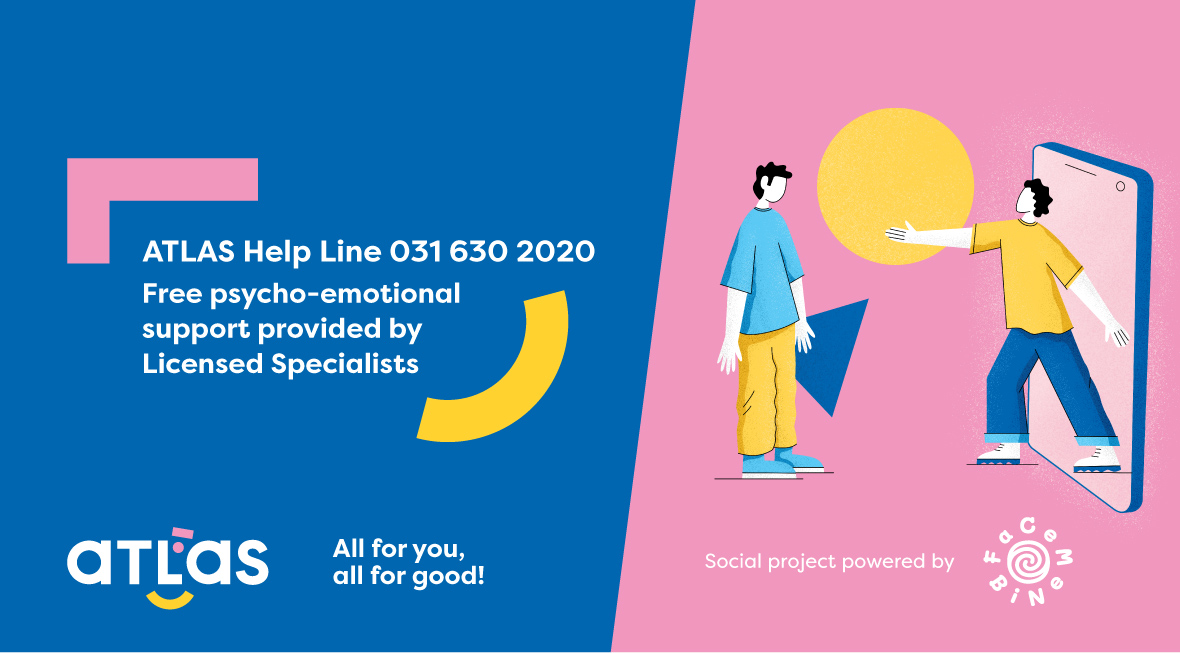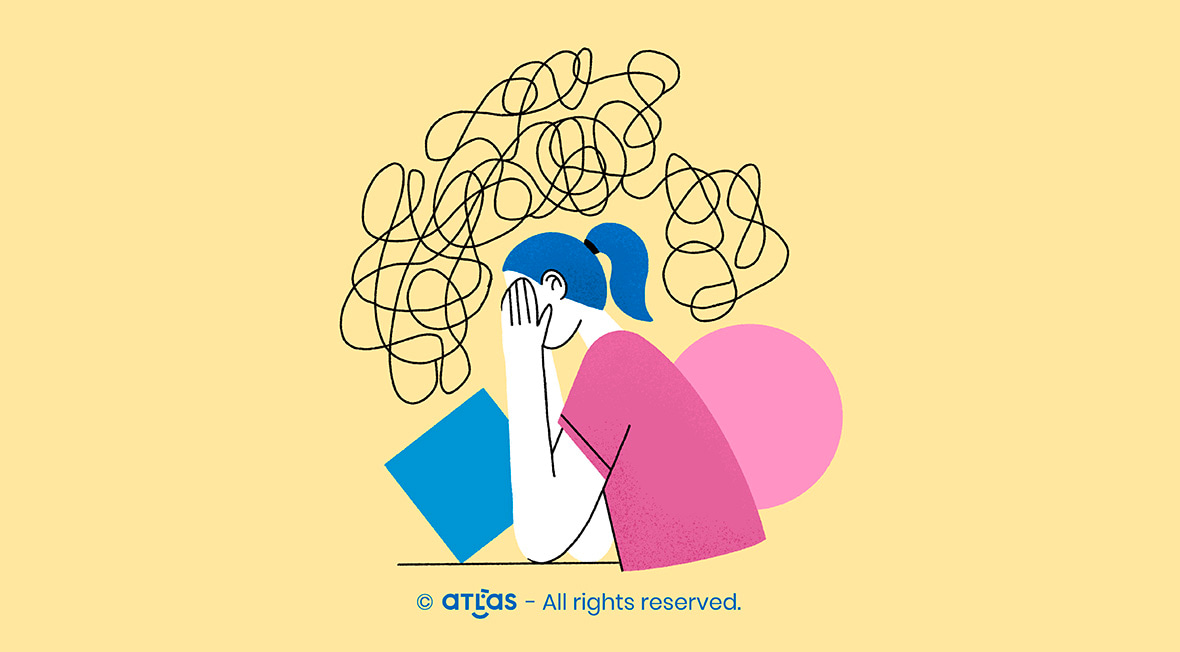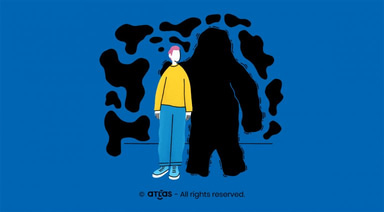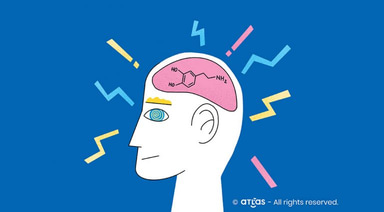From the middle of the Depression-Anxiety-Stress trilogy, we’re talking about the lady Anxiety, which does what she does and somehow manages to be the first in everything. Miss always invited to the prom or hidden ogre? ?
She comes hand in hand with all the other sisters, participates in all the meetings of phobias, depression, disorders, and bad thoughts, even those on a plate(food disorders). He likes the tension he’s taking in your mind.
She also let the other conditions fool around from time to time and don’t bother them to be in the spotlight every time. Anxiety has moments when it plays its hidden role and lurks from behind the curtain until it leaves you without a bit of LOGIC and rest.
Confusion? No.
What is anxiety?
Anxiety is a state of emotion characterized by feelings of tension, thoughts of concern, and physical changes, such as high blood pressure.
Anxiety disorders, according to APA, differ from normal feelings of nervousness, as they involve excessive fear and usually cause disproportionate reactions to circumstances.
On top of all this, is making a show:
Emphasize the care, but not the concern for yourself, but your concern for the most trivial things, to the truly pressing ones. Here’s it is! Does your heart rate go up just at the thought of them taking you by surprise? ?
What can we do? We want to point the finger at her a little bit (without making her feel uncomfortable, and trick you back from behind the curtain), so you know for sure it’s not depression, phobia, or you wonder what’s going on in this family of disorders with a lot of members.
Complete the DASS-21 test that assesses your emotional state of the past and focuses on three dimensions: depression, anxiety, and stress.
When do anxiety disorders begin, and how do you manifest themselves?
Symptoms can begin in childhood or adolescence and continue until adulthood.
The feeling of occasional concern is a normal part of life. Even so, people with anxiety disorders often have intense, excessive, and persistent worries and fears about everyday situations. People suffering from these disorders have repeated episodes of sudden feelings of intense worry and fear or terror that gets a peak in a matter of minutes (the well-known panic attacks).
The feelings of concern and panic interfere with everyday activities (performance at work, at school and in relationships), are difficult to control, are disproportionate to the real danger, and can last for a long time. To prevent these feelings, sometimes you tend to avoid certain places or situations.
How does anxiety disorders manifest themselves in the current context?
Specialists bring anxiety to attention as a matter of public health. And since we can’t separate mental and physical affection, problems are triggered as in a chain-generation card game with long-term consequences. This is where telemedicine comes in as support in a period of emotional and socio-economic upheaval with serious consequences for mental health.
Sandro Galea-Professor and Dean at Boston University School of Public Health, Harvard Business Review:
The effects on mental health after a traumatic event can last many years – even a lifetime. In a study of psychopathology after the Liberian conflict, done 20 years after the first conflict in the area, my co-authors and I found that the geographic patterns of PTSD were consistent with where the fighting took place all these years.
Examples of this kind show the importance of having structures to support the consequences on mental health that have arisen after this pandemic, both in the near and long term from general anxiety to PTSD (post-traumatic stress disorder).
Common, easily recognizable symptoms.
Here you have the most common signs and symptoms of anxiety:
- nervousness, agitation or constant tension;
- the feeling of imminent danger, panic or catastrophic/fatal outcome;
- increased blood pressure/increased heart rate;
- accelerated breathing (hyperventilation);
- night sweat/sweat;
- tremor;
- weakness or fatigue;
- trouble concentrating or thinking about other than a particular concern;
- sleep disturbances/nocturnal awakening;
- gastrointestinal problems;
- constant concern;
- unable to relax;
- the need to avoid situations that deliver anxiety.
Types of anxiety disorders
Depression, you know, that monster we keep talking about (often occurs with an anxiety disorder) or other mental health disorders:
We have a wide range of available when it comes to anxiety disorders:
- generalized anxiety disorder;
- social anxiety disorder (social phobia);
- panic disorders (panic attack);
- anxiety due to specific phobias (agoraphobia, etc.);
- selective mutism (anxiety/inability especially of children to express themselves in public, etc.);
- separation anxiety;
- anxiety due to the consumption of substances (or certain medicines).
You may have more than one anxiety disorder. For some people, this can also be linked to a hidden health problem.
If you notice that anxiety problems started after another diagnosis, we also have a list of physical conditions that may be related:
- cardio-vascular diseases;
- diabetes;
- thyroid problems;
- respiratory disorders, chronic obstructive pulmonary disease (COPD) or bronchial asthma;
- improper use of substances or withdrawal;
- abstinence from alcohol, drugs (benzodiazepines) or other medicines;
- chronic pain or irritable bowel syndrome;
- rare tumours that produce “fight or run” reaction hormones;
- as a side effect of some drugs.
Anxiety disorder isn’t just about being worried. It can also cause or worsen other mental and physical disorders, such as:
- substance abuse;
- sleep problems (insomnia);
- digestive or intestinal problems;
- severe headache;
- social isolation;
- problems at school or at work;
- poor quality of life;
- the thought of suicide;
- increased blood pressure.
Call on one of our specialists
Call on our therapy specialists to know what is the best therapeutic approach for you.
They will help you change the approach of negative patterns and the distorted way you look at the world.
Cognitive-behavioural therapy is usually a therapeutic approach to anxiety disorders. Research has also shown that it can be effective in the treatment of panic disorders, phobias, social anxiety disorders, and in the case of GDA, among many other conditions.
Let’s define the outline of anxiety; let there be no doubt about an accurate diagnosis. Call our check and licensed specialists, they are at your disposal through your ATLAS account, or by calling ATLAS Help Line – 031 630 2020, a free 24/7 hotline.




